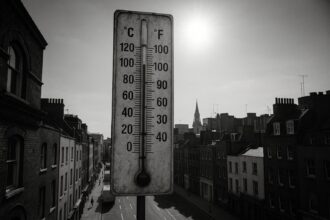Rising temperatures in global capitals pose significant risks to human health, infrastructure, and economies. A recent study highlights a surge in extremely hot days, with cities like New Delhi and Jakarta experiencing alarming increases. Urgent action is required from policymakers to address the impact of rising temperatures and heatwaves.
Increasing Heatwaves in Global Capitals: A Rising Concern
Background on UK Heatwave
The UK has been experiencing higher-than-usual temperatures this week, edging just above 25°C. Despite international perceptions, experts emphasize that local humidity and infrastructure contribute to the discomfort. Jim NR Dale of British Weather Services and Dr. Simon Keeling from Weather Consultancy Services highlight that humidity impedes sweat evaporation, making the heat feel more oppressive.
Global Context
A recent study by the International Institute for Environment and Development (IIED) reveals a significant rise in extremely hot days across the world’s most populous cities over the past 30 years. The analysis shows a 52% increase in days exceeding 35°C in key capitals like New Delhi, Jakarta, and Beijing.
Asian Cities at the Forefront
New Delhi recorded the most days above 35°C, with notable heatwaves pushing temperatures up to 49.9°C. Jakarta saw a jump from 28 days of extreme heat three decades ago to 167 days recently. Seoul and Beijing also reported significant increases.
Impact and Challenges
Extreme heat poses risks to human health, infrastructure, and economies. Vulnerable populations, including the elderly and homeless, face heightened risks. The urban heat island effect exacerbates conditions in cities, contributing to higher morning temperatures. The study underscores the need for immediate and strategic action from global policymakers to mitigate the impacts of rising temperatures.













